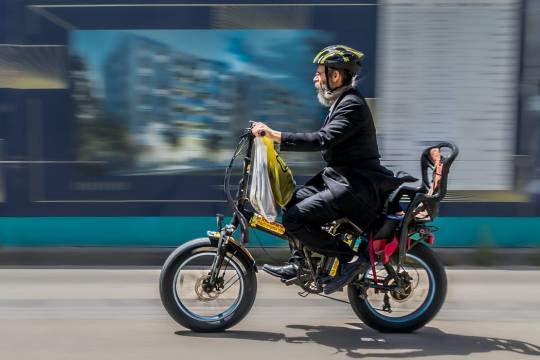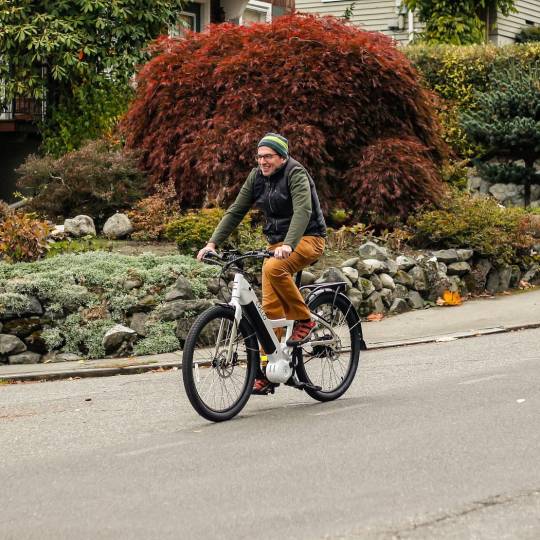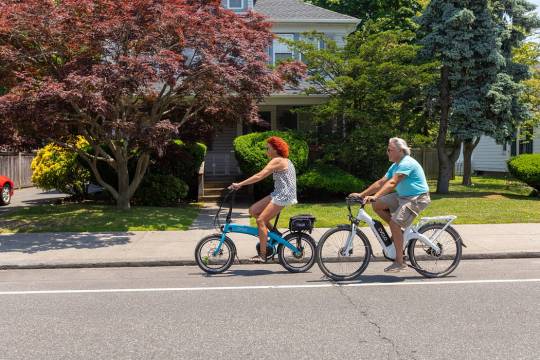#greenurbanmobility
Explore tagged Tumblr posts
Text
Eco-Friendly Marvels on Wheels A Showdown of 3 Energy-Efficient Electric Cycles

In the bustling realm of urban mobility, the quest for eco-friendly and cost-efficient transportation has led us to a trio of remarkable electric cycles. Let’s delve into the world of sustainable commuting as we compare the DYU C1, DYU D3F, and DYU T1 — each a beacon of energy-saving innovation.
DYU C1: Cruising with 350W High Speed

Motor Power: 350W The DYU C1 sets the streets ablaze with its powerful 350W high-speed motor, offering a smooth and efficient ride through the cityscape. Ideal for both work commutes and daily travels, the C1 boasts a motor that effortlessly propels you forward, minimizing energy consumption without compromising on speed.
DYU D3F: Folding Brilliance with 250W Brushless Might

Motor Power: 250W Enter the DYU D3F, a compact wonder featuring a 250W brushless motor with a torque of 10NM. This mini folding electric bike not only captivates with its portability but also stands as a testament to energy efficiency. The D3F strikes a balance between power and conservation, making it an eco-conscious choice for the savvy commuter.
DYU T1: Foldable Marvel with Pedal-Assist Torque Sensor

Motor Type: Pedal-Assist Torque Sensor Meet the DYU T1, a foldable electric bike that takes versatility to new heights. Boasting a pedal-assist torque sensor, the T1 seamlessly combines pedal power with electric assistance, optimizing energy usage. Its foldable design enhances convenience, making it a standout choice for those on the go, fitting effortlessly in car trunks, homes, and subway spaces.
Energy-Saving Synergy: What Sets Them Apart
In the realm of energy-saving electric cycles, each DYU model brings a unique set of features to the table. The C1 excels with its high-speed prowess, the D3F impresses with its folding convenience, and the T1 harmonizes pedal power with electric assistance.
Choosing Your Green Companion
As we navigate the concrete jungles of modern life, these electric cycles emerge as more than just transportation; they’re a statement — a commitment to a greener future. Whether you prioritize speed, portability, or a seamless blend of both, DYU has an eco-friendly answer for every urban adventurer.
In the symphony of sustainable commuting, let your choice echo not just in the city streets but in the energy-conscious hearts of all who ride. So, saddle up, charge ahead, and let your journey be a testament to the power of eco-friendly, cost-efficient electric cycles.
#EcoWheelsRevolution#RideGreenSaveGreen#ElectricCommuteChic#DYUEcoCycles#SustainableRideSolutions#PedalPowerTech#FoldingFutureMoves#GreenUrbanMobility#DYUEnergyEpic#CycleSmartLiveSmart#ebikes#ecofriendly#electric bike
0 notes
Text
Are e-scooters actually environmentally friendly?

Electronic bicycles, or e-scooters, have become popular in recent years as an environmentally friendly form of transportation in urban areas. However, there is still debate about whether electric scooters are environmentally friendly. In this article, we will look at the environmental impact of electric scooters and the factors that determine their longevity. Electric cars are powered by rechargeable batteries, making them cleaner than gas-powered cars. They also produce less pollution and emissions, making them a better choice for the environment. In addition, they can help ease traffic jams and provide a convenient form of transportation for short trips. However, there are also concerns about the production, maintenance and disposal of electric scooters. Producing electric scooters requires materials such as metals, plastics and batteries, which can have a significant impact on the environment. Manufacturing processes can also generate air and waste. In addition, the lifespan of electric scooters is short, with most companies reporting a lifespan of about six months. This means that a large number of electric scooters will be produced and disposed of, which can lead to waste and pollution. Another thing to consider is the power source used to charge the electric bike. While many companies use renewable energy sources such as wind and solar power, others rely on fossil fuels. In addition, the process of charging and transporting an electric scooter can also generate emissions. In general, electric cars can be a better choice for the environment than gas-powered cars, but their longevity depends on many factors such as their production, processing and disposal, and the source the power used to make them. To ensure that electric scooters are very friendly to the environment, it is important to choose a company that prioritizes sustainability in their work and their proper use. Read the full article
#carbonfootprint#cleantransportation#eco-friendlytransportation#electricbikeshare#electricscooters#electricvehicles#emission-free#greentransportation#greenurbanmobility#micro-mobility#sharedtransportation#sustainablecity#sustainablemobility#sustainabletransport#urbantransportation
0 notes